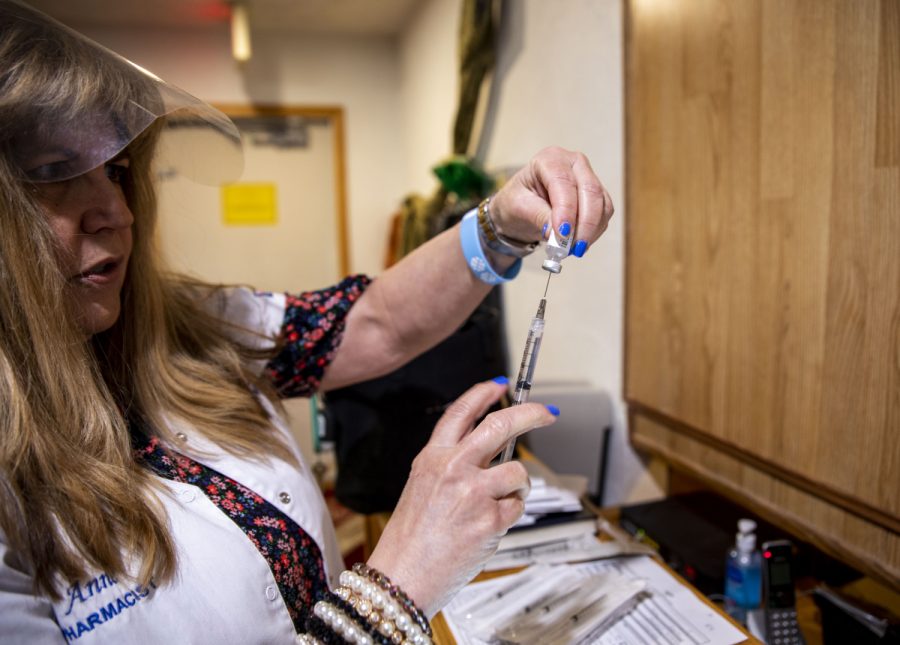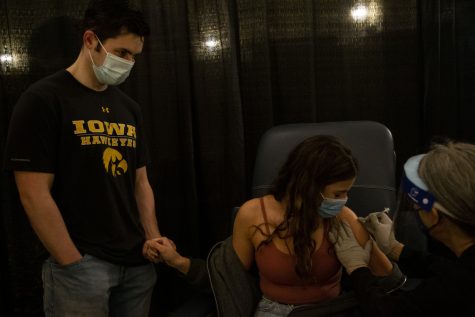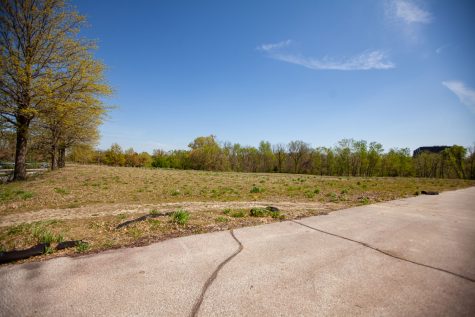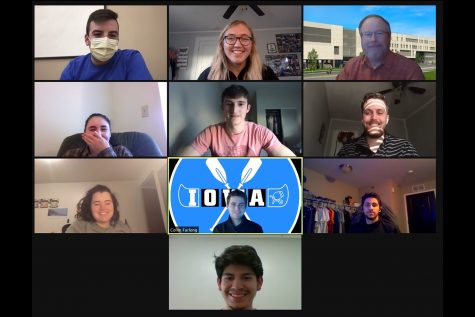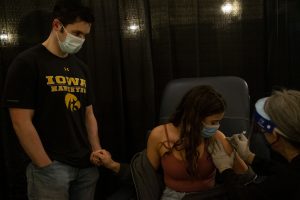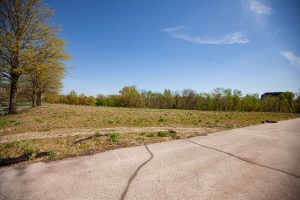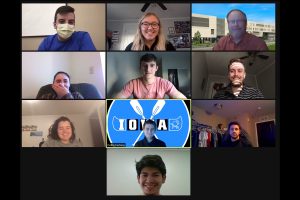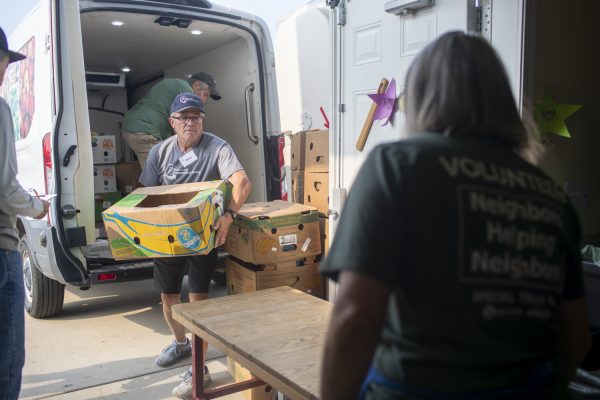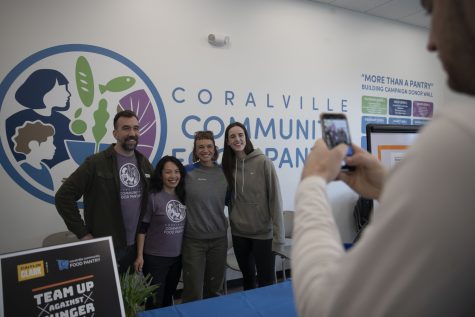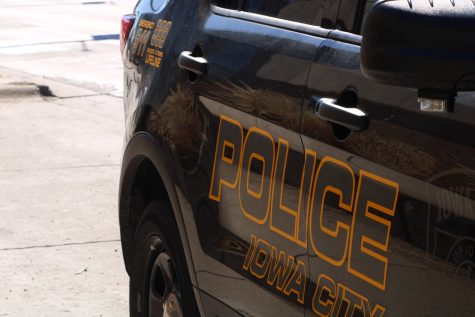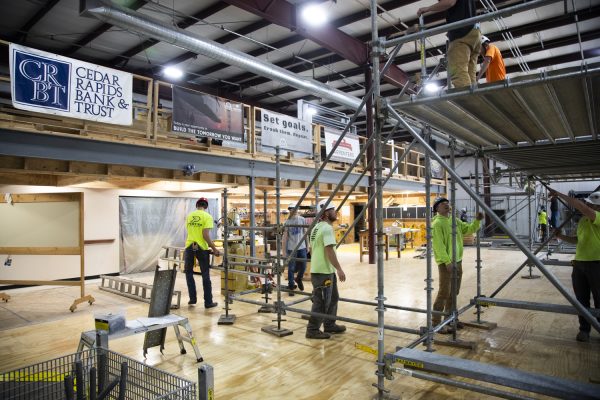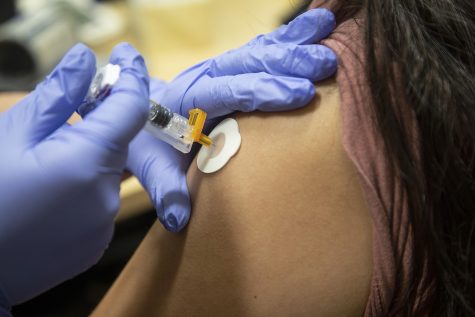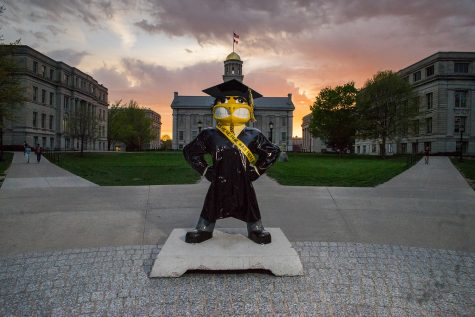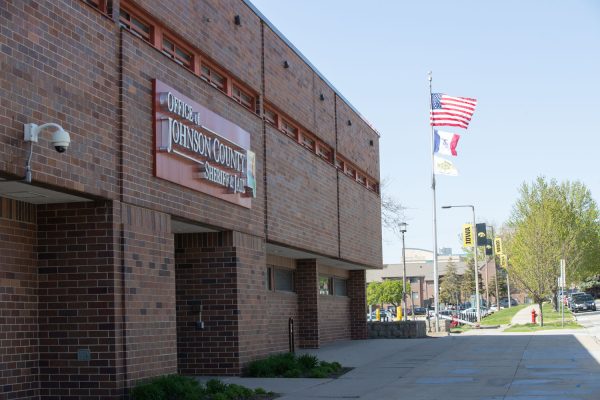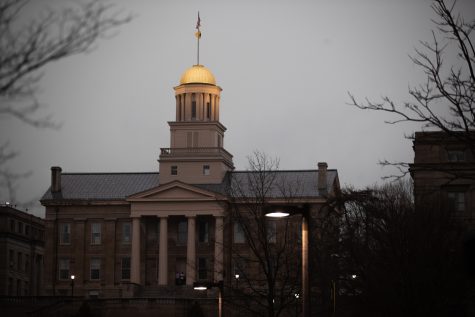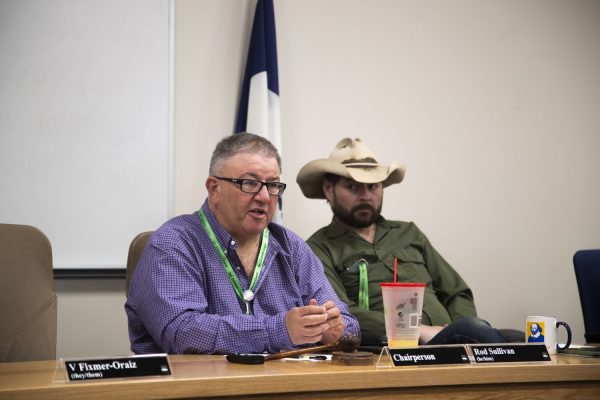Local pharmacies are struggling to fill COVID-19 vaccination appointments
The slowdown in scheduled appointments has prompted some local pharmacies to update their policies to help maximize the number of doses administered.
Pharmacist Anne Lohaus draws up vaccines on Saturday, April 12, 2021. Hartig Pharmacies were administering first round doses to customers in the prayer room at Al-Iman Mosque.
May 2, 2021
As the national supply of COVID-19 vaccines continue to increase, some local pharmacies are struggling to fill appointments.
The struggle to keep local vaccination rates high comes as several counties across the state of Iowa are declining vaccine doses from the federal government. For the week of May 10, the Iowa Department of Public Health turned down 71 percent of vaccine it could have received. As a result of the lower demand, local pharmacies are developing new policies to maximize the number of doses they can administer.
Mike Deninger, co-owner of Towncrest Pharmacy in Iowa City, said while appointments were easy to fill in the first weeks of vaccine rollout, demand for the vaccine at his pharmacy has sharply dropped off in recent weeks. No-show appointments have also become more common, he said.
“The folks that were excited to be vaccinated have mostly already gotten at least their first dose,” Deninger said.
Complicating issues further, the mRNA vaccines — Pfizer and Moderna — don’t come in single-dose vials like many other common vaccines do. This means that if patients do not show for an appointment, there is a risk that some amount of vaccine will be wasted, Deninger said.
“Once I open a Pfizer vial, I’m committing to six doses,” Deninger said. “I spend hours on some days calling forward on my schedule to get people to take the extra vaccines.”
Deninger added that it is often hard to fill in for no-shows because many future appointments are scheduled for a second vaccine dose. Such appointments require a minimum time gap in between doses in order for the vaccine to work as intended, he said.
Christina Gayman, director of public relations for Hy-Vee, said the company recently faced similar challenges in filling online appointments, but has since then opened up pharmacies for COVID-19 vaccine walk-in appointments.
“Online scheduling had some barriers and challenges for certain individuals,” Gayman said. “This now makes the vaccine much more accessible to everyone.”
Gayman said opening up for walk-in appointments has also appeared to be effective in increasing the vaccination rates at Hy-Vee pharmacies so far.
“We’ve seen an increase in the number of vaccines we’re now giving in our locations,” Gayman said. “I think now we’re able to meet the needs of individuals who are looking for convenience.”
Gayman added that vaccination rates in Iowa have generally mirrored trends seen in the other Midwestern states that HyVee operates in.
Brian Finley, a University of Iowa employee who runs the IAVaccineAlerts account on Twitter, said there has also been less interaction from other users with his account, which tweets out open vaccine appointments as they become available in pharmacies across the state. The decrease in activity reflects local downward trends in vaccination rates.
“Originally, appointments in bigger cities were gone within minutes, but it’s started to reach a saturation,” Finley said. “It went from dozens of messages and questions per day to maybe one or two this week.”
Finley said he has tried his best to promote the vaccines to his audience, but he feels limited in his ability to make an impact because he lacks public health expertise. He said he plans to keep the account running if booster shots become necessary, or vaccination eligibility expands to people younger than 16 years old.
“There’s honestly not a lot of vaccine deniers looking at my feed,” Finley said. “But I will keep the account around in case there’s a spike [in demand] for 12-15-year-olds or boosters.”
Deninger said he hopes that as hesitant locals continue to see people they trust get vaccinated, they will also become more willing to receive the vaccine. According to a March Des Moines Register poll, 27 percent of Iowans surveyed reported they didn’t plan to get a COVID-19 vaccine.
“It’s becoming a PR sell at this point,” Deninger said. “There’s going to be a little bit of a need for peer pressure.”



